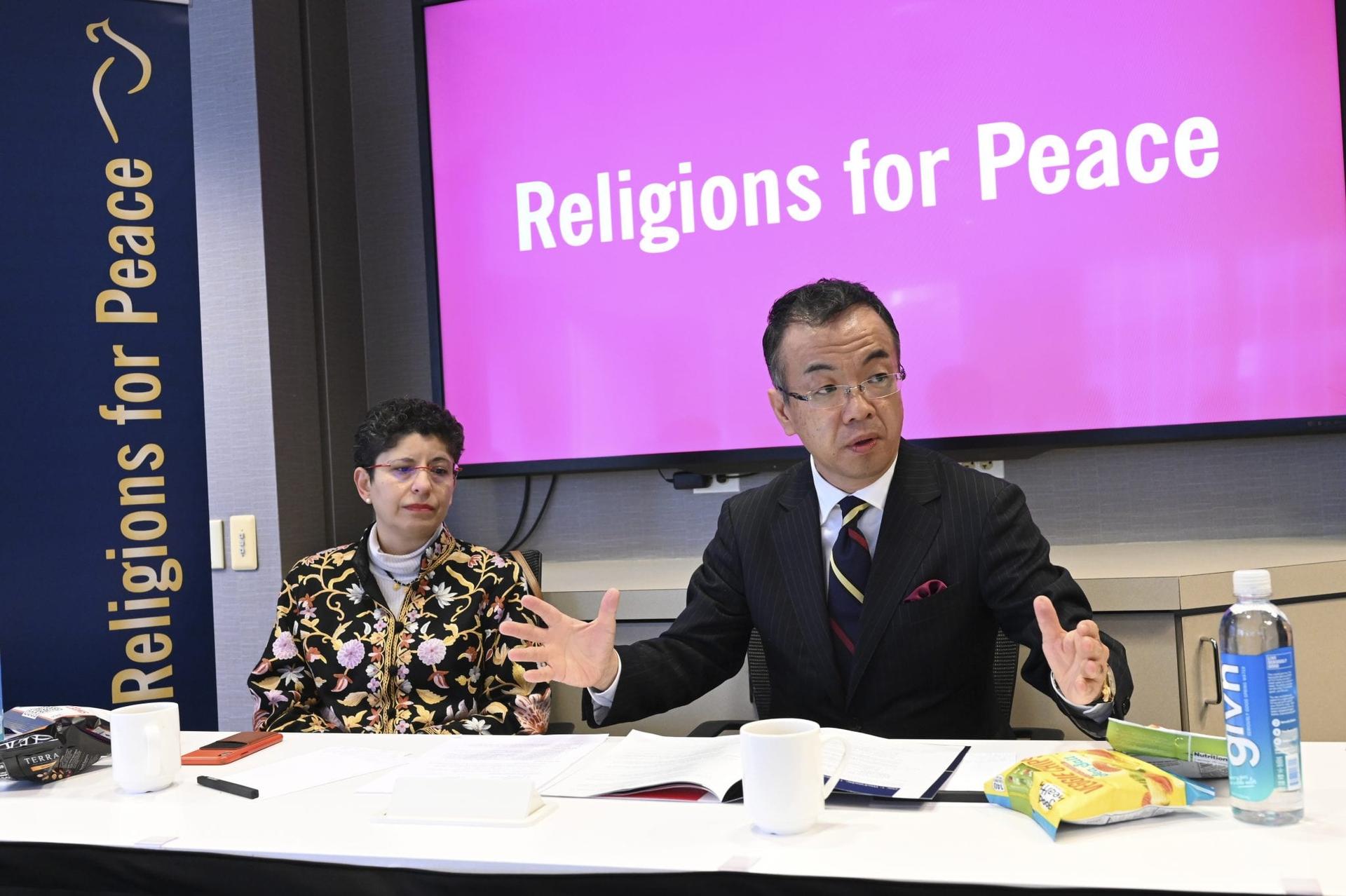NEW YORK — Religions for Peace, a coalition representing millions of believers, convened over 250 global religious peace-builders in New York to set priorities for addressing challenges faced by communities the world over, ranging from peace and security issues to environmental degradation and climate change to “freedom of thought, conscience and religion.”
Government officials, diplomats, U.N. representatives, leaders of partner organizations and philanthropists came together with the Religions for Peace network of religious communities Dec. 11-13.
The convening was part of a process of developing global priorities that has been underway for over a year, beginning with national and regional consultations held across the globe by Religions for Peace affiliates.
At the 10th World Assembly held in August in Lindau, Germany, over 1,000 delegates from 125 countries came together to identify goals and action areas based on these consultations.
In New York, Religions for Peace “conducted the most inclusive and participatory strategic planning process in its nearly 50-year history,” according to a news release. “The final strategic plan will outline the global peace priorities of the represented religious communities — nearly 1 billion people from every region — for the next five years.”
Attendees came up with the outline of a strategic plan and organized it into themes: peaceful and inclusive societies; gender equality; environment; freedom of thought, conscience and religion; interreligious education; and global partnership.
Priorities in the outline include:
— Strengthening personal commitment “to cultivate a spirituality and practice of peace and shared well-being.”
— Promoting interreligious education, dialogue and exchange programs to educate and explore approaches “to shared well-being and to counteract tendencies of populism, hate speech, intolerance and social divides.”
— Advocating to hold public officials and leaders accountable for ensuring peace and shared well-being through “respect, good governance, rule of law, and implementation of international law and agreements.”
— Promoting religious discourse and a culture of peace that emphasizes shared human values and respect for different faiths.
— Educating and training leaders on implementing the U.N. Plan of Action for Religious Leaders and Actors to Prevent Incitement to Violence that Could Lead to Atrocity Crimes, unveiled in 2017.
— Supporting “credible internal intermediaries” to promote dialogue with alienated groups and intervene where possible.
— Addressing specific conflicts and promote reconciliation through multifaith proposals, dialogue, and mediation.
— Building on international agreements and interreligious declarations that recognize and promote women’s rights as well as those that recognize and promote environmental protections as human rights.
— Raising awareness/knowledge about priority issues among the masses (religious and secular), especially youth, through traditional and social media, campaigns, education, conferences and public events.
The outline also calls on faith, community and government leaders to host interreligious and multifaith meetings, dialogues, conferences, roundtables, seminars, festivals and exchange programs. It urges research, lectures and presentations be done on the various issues identified by the strategic plan.
The outline was approved by the World Council of Religions for Peace. The council is the organization’s highest governing body and is composed of 60 senior religious leaders. The final plan will be launched early next year.
Participants in the deliberations in New York included representatives from every region and religious tradition within the Religions for Peace global network.
Crux is dedicated to smart, wired and independent reporting on the Vatican and worldwide Catholic Church. That kind of reporting doesn’t come cheap, and we need your support. You can help Crux by giving a small amount monthly, or with a onetime gift. Please remember, Crux is a for-profit organization, so contributions are not tax-deductible.















